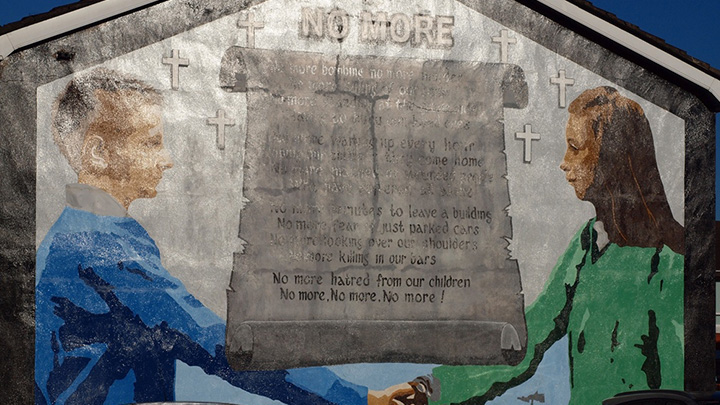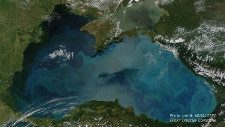Northern Ireland 20 Years after the Peace Deal

Alec Forss
This week marks the twentieth anniversary of the historic Good Friday Agreement of 1998, which signaled an end to the three decades of violence in Northern Ireland known as the Troubles. Renouncing armed struggle, all sides pledged to pursue their aims peacefully through political accommodation. The price had been high: over 3500 deaths, tens of thousands injured, while communities were left with deep psychological scars and grievances.
Peace was not established overnight. Despite the wave of relief and elation, some neighborhoods in fact experienced an upsurge in violence following the agreement, with much uncertainty and suspicion regarding the path ahead. Put to a referendum, only half of the Unionist community who voted endorsed the peace deal. Just a few months later, the tragic Omagh bombing – in which 29 people were killed – was a violent demonstration of opposition to the agreement by a small but significant faction of dissident Republicans who called themselves the Real IRA.
Despite numerous setbacks, however, the mechanisms for peace were gradually implemented. Key milestones, among others, included the decommissioning of paramilitary weapons in 2005, and, following years of suspension, the election of a new Northern Ireland Assembly and power-sharing executive in 2007. A Parades Commission had also been established to rule on contentious parades, while Sinn Fein’s acceptance of the newly reformed Police Service of Northern Ireland marked a breakthrough for the normalisation of law and order.
Read the full article here.
Related Publications
-
The US and EU, and the Emerging Supply Chain Network: Politics, Prospects, and Allies
The Global Supply Chains have evolved from simply logistical achievements to being the bedrock of the global economy. Driven by technological advances and geopolitical shifts, this transformation underscores the critical […]
-
Navigating the Indo-Pacific: How Australia and the EU Can Partner for Peace, Stability, and Prosperity
To navigate the choppy waters of the Indo-Pacific, the EU and Australia must be on the same wavelength regarding shared interests in rules, values, and an open and liberal economic […]
-
Report of the Webinar on China’s Himalayan Hustle – Part IV: EU, India, and US – Framing a Troika to Scuttle China’s Himalayan Strategy?
This report is an outcome of ‘China’s Himalayan Hustle-IV’ webinar on “EU, India, and US – Framing a Troika to Scuttle China’s Himalayan Strategy?” which was conducted by the Stockholm […]
-
China as a Black Sea Actor: An Alternate Route
China’s international role has expanded rapidly in the last decades, and the Greater Central Asian region, Europe, and the Middle East, to which the Black Sea region (BSR) connects, are […]
-
Taiwan-PRC Crisis: What Cross-Strait Conflict Could Cost Europe
The escalating tensions between Taiwan and China pose significant economic and strategic challenges to the European Union, such as the inaccessibility of Taiwanese inputs, market, and capital. This issue brief […]




